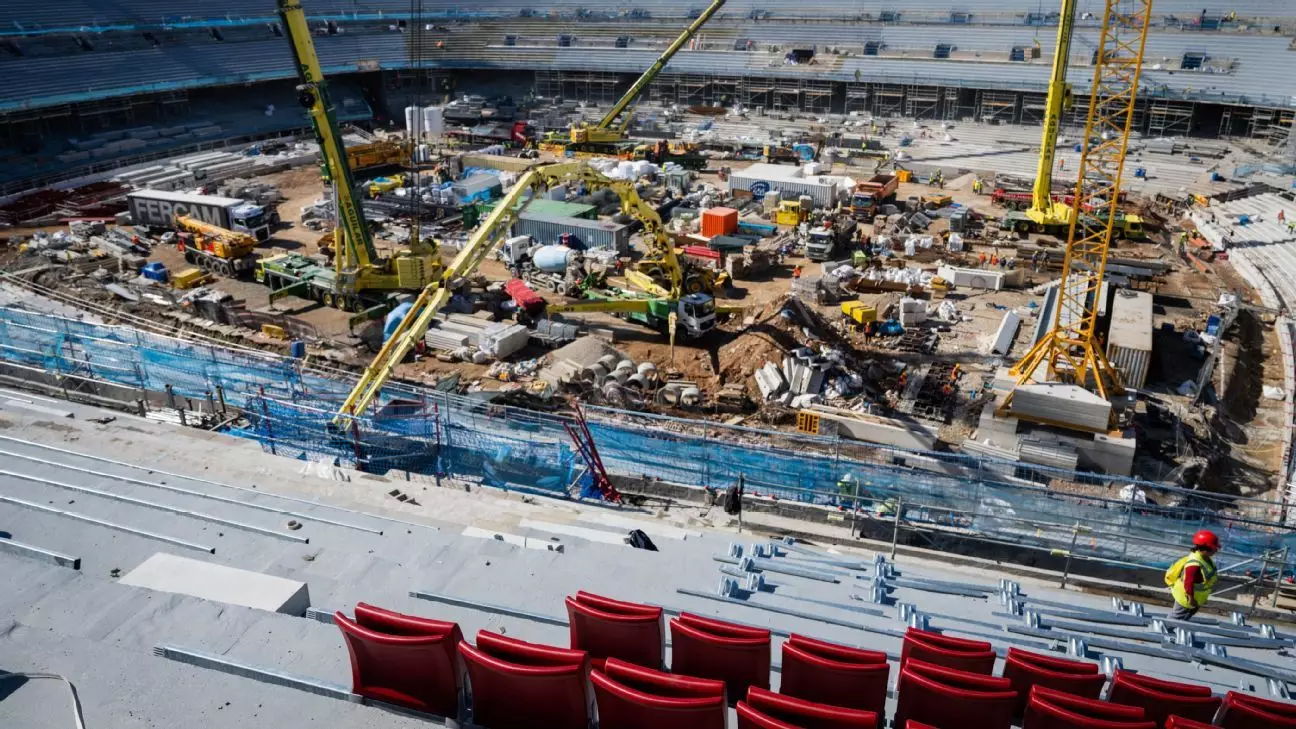FC Barcelona has faced a significant challenge as the timeline for their much-anticipated return to the historic Spotify Camp Nou continues to be pushed back. Initially hoped for a November return that coincided with the club’s 125th anniversary, these aspirations have now shifted as the club confirmed they will remain at the Olympic Stadium through at least April 23, 2024. This delay reflects the complexities of modernizing one of football’s most iconic venues, highlighting not only logistical issues but also the extent of the renovation needs that have emerged since the original plans were set in motion.
As Barcelona plays out the remainder of the LaLiga campaign, the implications of being based at the Olympic Stadium are considerable. They will conclude their season at this temporary location with crucial matches against rivals such as Real Madrid on May 11 and Villarreal on May 18. The change in venue poses strategic and emotional challenges for not only the players but also the fans who long to experience the thrilling atmosphere of Camp Nou. There remains hope, albeit tenuous, that they might play at their home ground before the end of the season, yet the likelihood of this shift happening on time appears grim given the ongoing renovations.
The impact of these delays extends beyond domestic competition. Barcelona must also navigate their Champions League commitments under UEFA regulations, which prohibit clubs from switching stadiums during the knockout phase. This means all remaining European matches will occur at the Olympic Stadium, necessitating an adjustment period for the team. The stakes are particularly high as the club aims to perform well in Europe, and the lack of a familiar home ground could disrupt their rhythm and sense of security.
Looking ahead, there is a silver lining to this predicament. The planned renovations promise a state-of-the-art facility that will ultimately boost capacity to around 105,000, making it one of the largest stadiums in Europe. While initial attendance upon reopening will be capped at around 60,000 due to ongoing work, fans can expect a rejuvenated atmosphere. The full completion of the ambitious project is expected by the summer of 2026, a milestone that could redefine the fan experience and solidify Barcelona’s standing as a footballing powerhouse.
For now, the club, its players, and supporters must adapt to this transitional phase. The challenges posed by the renovation process serve as a reminder of the dedication required to innovate and improve. Barcelona’s journey through this renovation highlights the balance between maintaining a rich history while stepping boldly into the future—a reflection of the club’s determination to remain competitive on both national and international stages amidst the evolving landscape of football. As they navigate this period, the resilience and loyalty of the fanbase will undoubtedly play a pivotal role in their success, reinforcing the unity that defines FC Barcelona.
